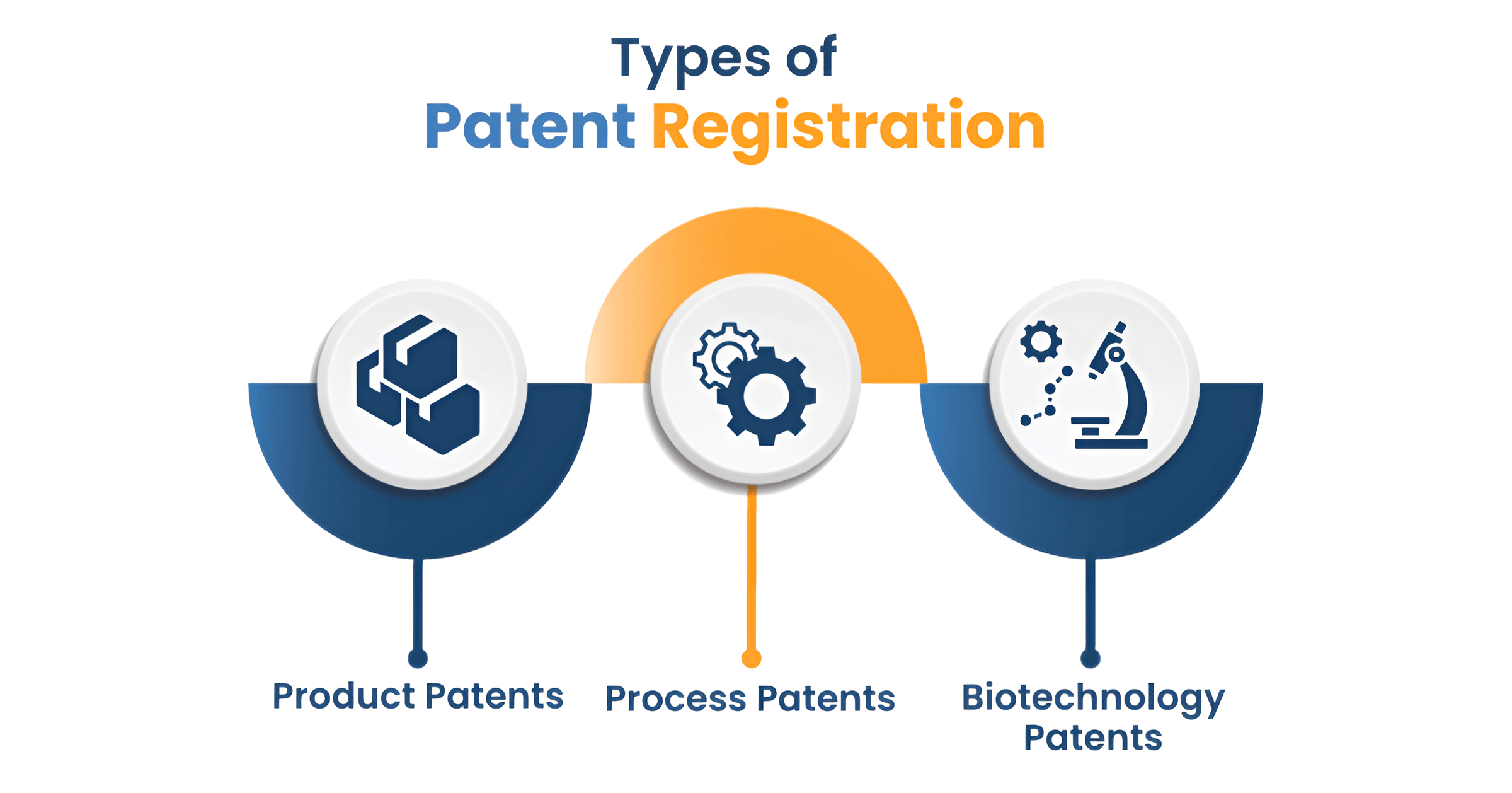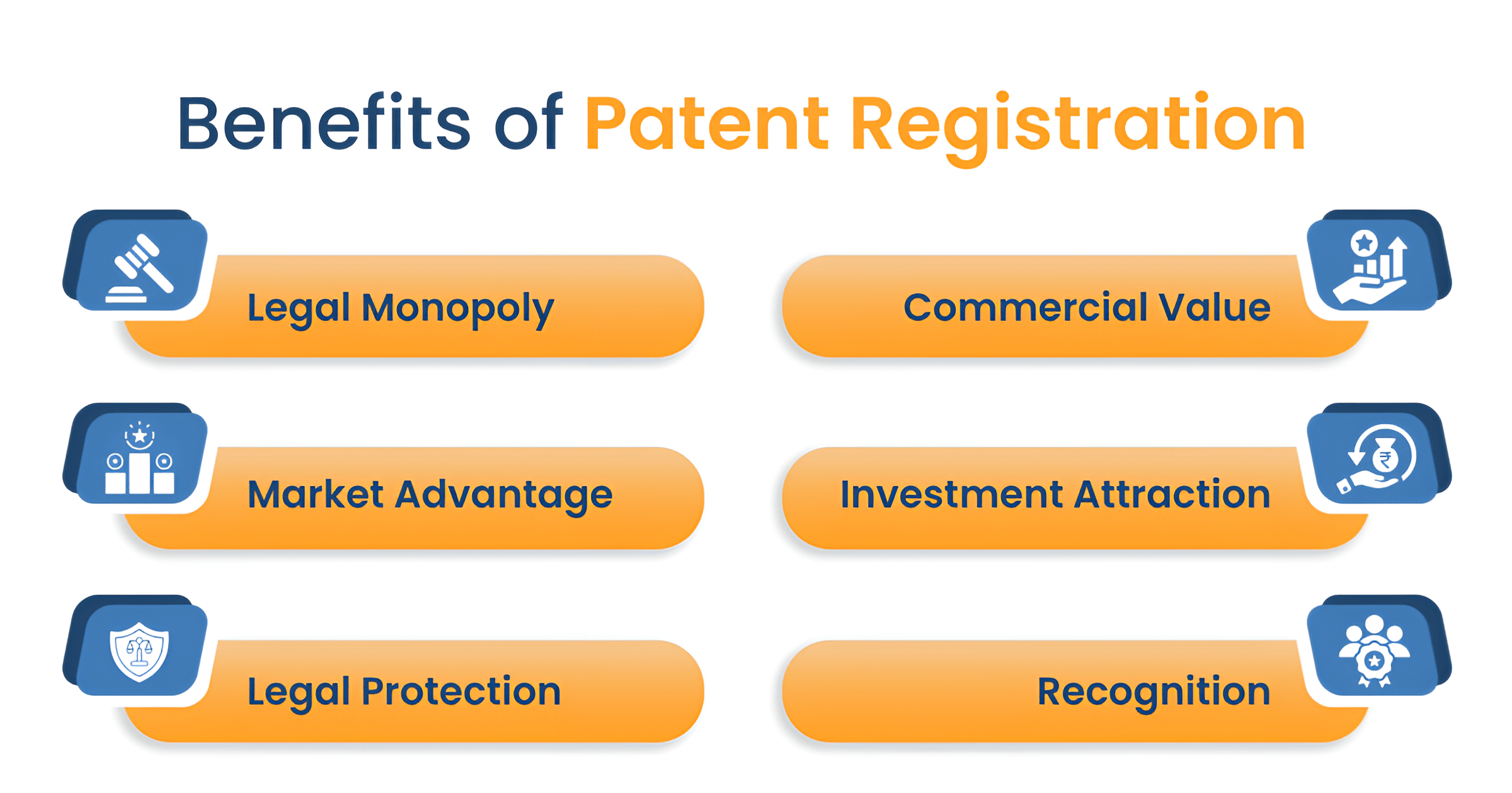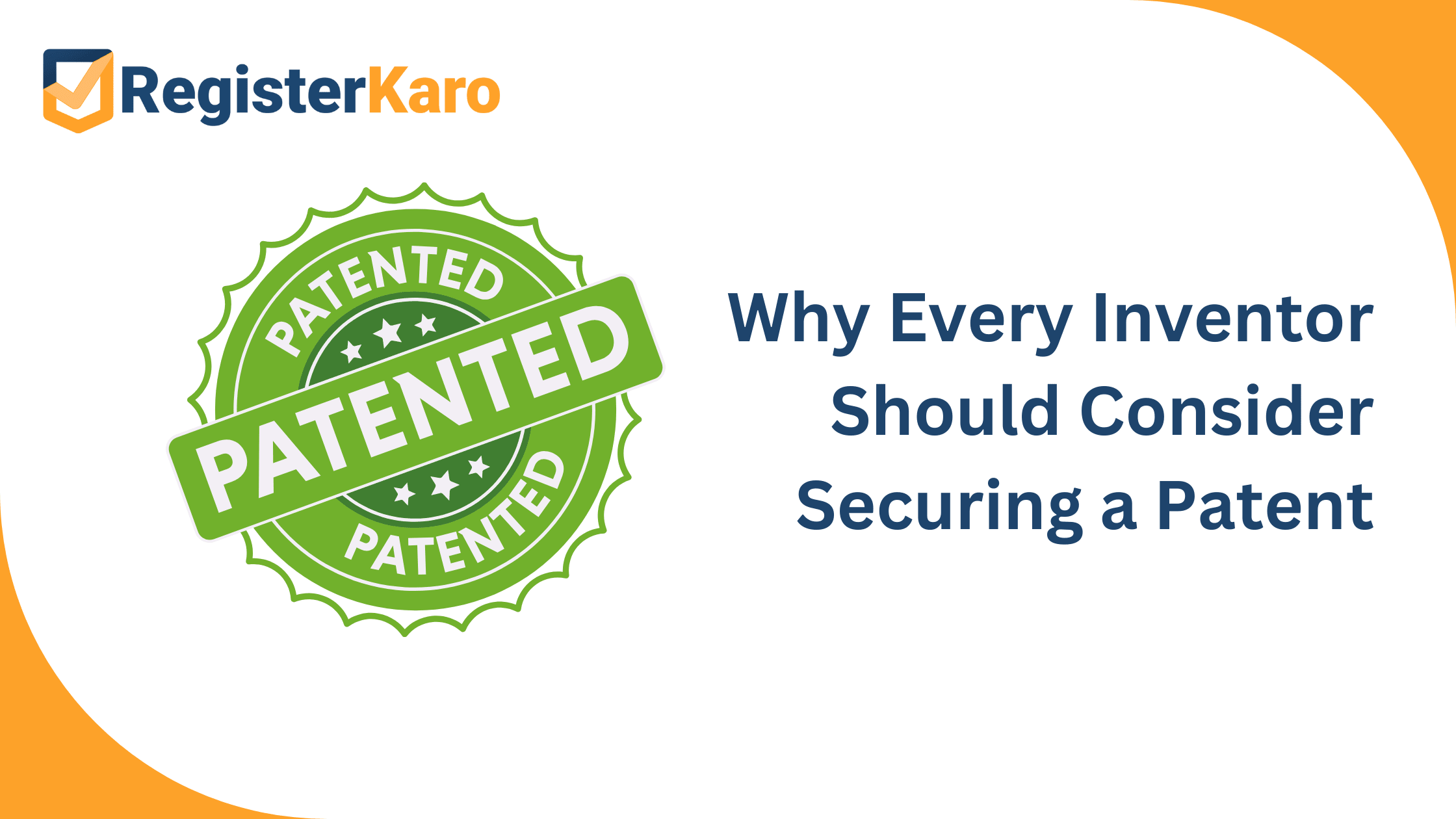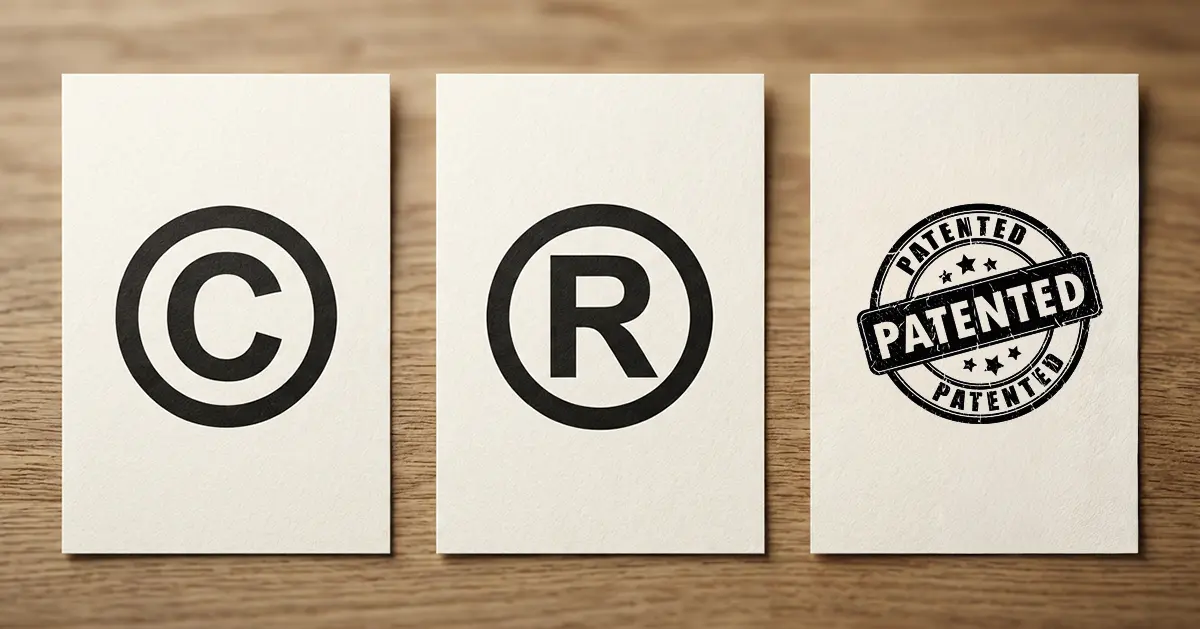Patent registration is the legal process through which an inventor obtains exclusive rights to their invention for a specified period, usually 20 years from the filing date in India. A patent prevents others from manufacturing, applying, selling, or importing the patented product or process without the owner's permission.
This legal process ensures an invention is new, involves an inventive step, and is capable of industrial application, granting the owner legal ownership. In short, a patent protects the way an invention works, process, or method of manufacture.
Types of Patents Available for Registration in India
While the Indian Patents Act, 1970 does not explicitly categorize patents into specific types, patentable inventions can generally be divided based on their nature, such as:

1. Product Patents
Product patents are granted for new, useful, and inventive physical items. These can include machines, devices, tools, pharmaceutical compositions, or chemical compounds.
- Example: A new drug formulation or a multi-functional mechanical device.
2. Process Patents
A process patent protects a new and original method of creating something, usually related to manufacturing or production. The focus is on the steps or techniques, not the end product.
- Example: A unique method for purifying water or producing eco-friendly plastic.
3. Biotechnology Patents
These patents cover innovations involving biological materials or processes. This can include genetically engineered microorganisms, biotechnological production techniques, or bio-based chemical processes.
- Example: A genetically modified microorganism that helps clean oil spills.
4. Software-Related Inventions (With Hardware)
In India, you can't get a patent for software by itself. But if the software works together with special hardware or helps solve a technical problem, it might be allowed.
- Example: A traffic control system that uses both software and special devices to manage traffic better.
Note: To be patentable, the software must be part of a technical solution to a problem and not merely an algorithm or business method (excluded under Section 3(k)).
What Legal Rights Do You Get with a Patent?
A patent gives the owner a powerful set of legal rights. The patent registration in India grants you the exclusive right to control your invention. This means you can stop others from:
- Making the patented invention.
- Using the patented invention.
- Offering for sale or selling the patented invention.
- Importing the patented invention into India.
These rights allow you to have full control over your invention for 20 years from the filing date, giving you a strong competitive advantage.






